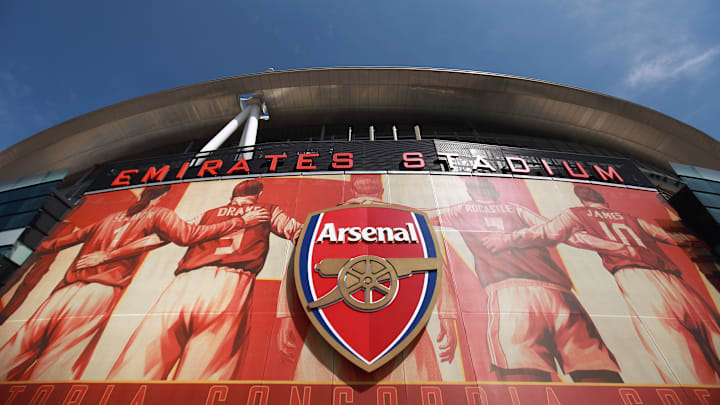1. France: The Wenger Revolution
The French Connection
The most significant international impact on Arsenal came from France, primarily during the era of manager Arsène Wenger, who joined the club in 1996. Wenger brought with him a new philosophy, focusing on diet, training, and a fluid playing style, much of which was influenced by his French roots.
Key Players
Players like Thierry Henry, Patrick Vieira, Giroud, Sagna, Clichy, Flamini and Robert Pirès not only brought immense skill but also a winning mentality to the squad. Thierry Henry, in particular, became Arsenal’s all-time leading scorer, and his influence extended beyond his goals to embody the style and elegance Wenger’s teams were known for. The French impact was profound during the club's unbeaten Premier League season (2003-04), a squad that was heavily French-influenced.
2. Spain: Technical Mastery and Flair
Spanish Influence
In the 2000s, Spanish players began making their mark at Arsenal, characterized by technical skill and tactical intelligence. This influx coincided with Spain’s rise to prominence on the international stage, culminating in their World Cup and European Championships victories.
Impactful Players
Cesc Fàbregas stands out as a central figure during this period, having joined Arsenal’s academy from Barcelona. His development into a world-class midfielder under Wenger was critical for Arsenal. Later, players like Santi Cazorla and Mikel Arteta continued this tradition, contributing creativity and leadership both on and off the field. And everyone remembers and loves Jose Antonio Reyes.
3. England: The Backbone of the Club
Homegrown Heroes
As an English club, it's no surprise that English players have been crucial to Arsenal's history. From the legendary figures of the past like Tony Adams, Campbell, Keown,Cole, and Ian Wright to more recent stars like Jack Wilshere, Bukayo Saka, Rice and White English players have provided the backbone of the team across generations.
Lasting Impact
The influence of English players is intertwined with Arsenal's identity. Tony Adams, a product of Arsenal's youth system, epitomized leadership and commitment, captaining the club to multiple league titles and cup victories. More recently, players like Saka and Rice have been central to key victories and moments, continuing the tradition of English impact at Arsenal.
4. Brazil: Flair and Rhythmic Grace
Brazilian Flair
The Brazilian players at Arsenal have added a unique flair and creativity that is synonymous with their footballing culture. Starting with players like Edu, Gilberto Silva, who was a cornerstone of the Invincibles squad, Brazilian talent has continued to flow into Arsenal, enhancing the team’s dynamic and style.
Recent Influences
In more recent years, players like Gabriel Martinelli and Gabriel Magalhães have brought their vibrant, energetic play to the forefront. Martinelli, in particular, represents the future of Arsenal, with his rapid development, skill, and scoring ability, proving crucial in many matches.
5. Netherlands: Technical Prowess and Attacking Flair
Dutch Impact
Dutch players have also significantly influenced Arsenal, particularly with their technical abilities and attacking prowess. The Netherlands has been known for producing technically gifted players, and those who came to Arsenal were no exception.
Notable Contributions
Dennis Bergkamp, who joined Arsenal from Inter Milan in 1995, was transformative. His technique, intelligence, and ability to score and create memorable goals made him a legendary figure at the club. Robin van Persie’s tenure at Arsenal also saw him develop from a talented but raw winger into one of the world’s best forwards under Wenger's guidance.
Conclusion
The contributions of French, Spanish, Dutch, English, and Brazilian players to Arsenal Football Club have been profound. Each group brought with it distinct qualities: the tactical acumen and elegance of the French; the technical skill and creative flair of the Spanish; the technical precision and attacking talent of the Dutch; the relentless spirit and resilience of the English; and the rhythmic grace and explosive creativity of the Brazilians. These influences have not only shaped the playing style and successes of Arsenal but also contributed to the global appeal and competitive nature of the Premier League. As Arsenal continues to evolve, the legacy of these countries and their players remains a foundational part of the club’s identity.
